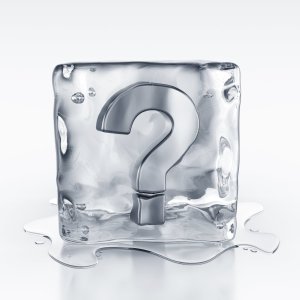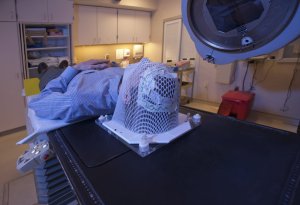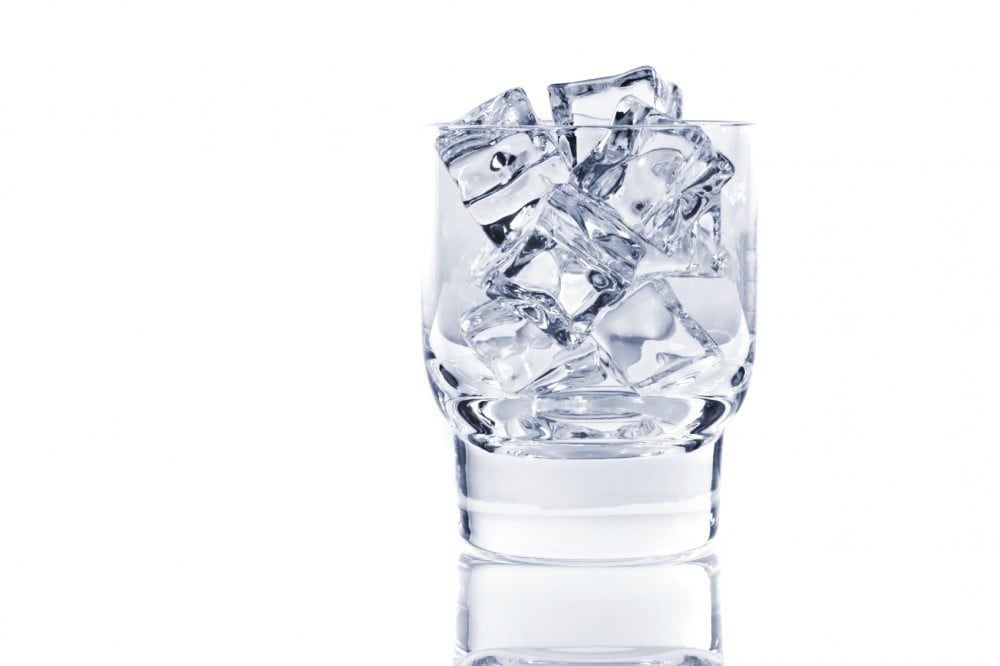
Page last checked 6 March 2023
It’s a long time since I worked on a children’s cancer ward, but I do remember that sore mouths were a miserable problem for many and that we did several things to help prevent ulceration, including giving the children ice chips to suck. So I was interested to see a brand new Cochrane ReviewCochrane Reviews are systematic reviews. In systematic reviews we search for and summarize studies that answer a specific research question (e.g. is paracetamol effective and safe for treating back pain?). The studies are identified, assessed, and summarized by using a systematic and predefined approach. They inform recommendations for healthcare and research. investigating whether making the mouth cold (with ice, iced water, ice cream or ice lollies) is effective in preventing ulceration in people having cancer treatments. Properly termed oral cryotherapy, it’s free, it’s simple, it’s natural, but does it work? It would be good to know.
It’s not just a sore mouth
Oral mucositis is a common side effectAny unintended effect (e.g. dizziness or a headache) of an intervention such as a drug, surgery or exercise. of high-dose chemotherapy and radiotherapy to the head and neck, affecting 75% of patients receiving these treatments, and its consequences can be severe. As well as causing pain, interfering with the person’s ability to eat and drink and potentially interrupting their treatmentSomething done with the aim of improving health or relieving suffering. For example, medicines, surgery, psychological and physical therapies, diet and exercise changes., mouth ulcers provide an entry point for bacteria, which can lead to sepsis and death in immunocompromised patients.
Why would cooling the mouth help?
Oral cryotherapy reduces blood flow to the mouth by narrowing the blood vessels, limiting the amount of chemotherapy drugs delivered to the tissues. Given this mechanism, it is not clear whether it could help those receiving radiotherapy.
What’s the evidence?

The Cochrane Review Interventions for preventing oral mucositis in patients with cancer receiving treatment: oral cryotherapy (published December 2015) brought together all the relevant randomizedRandomization is the process of randomly dividing into groups the people taking part in a trial. One group (the intervention group) will be given the intervention being tested (for example a drug, surgery, or exercise) and compared with a group which does not receive the intervention (the control group). controlled trialsA trial in which a group (the ‘intervention group’) is given a intervention being tested (for example a drug, surgery, or exercise) is compared with a group which does not receive the intervention (the ‘control group’). on oral cryotherapy for preventing oral mucositis in people receiving treatment for cancer. The review has 14 studies, dating from 1991 to 2015 and including some currently unpublished dataData is the information collected through research.. Of the 1316 participants, almost all were adults and most fell into two groups: those with solid tumours receiving fluorouracil-based (5FU) treatment and those receiving high-dose melphalan-based cancer treatment before haematopoietic stem cell transplantation (HSCT). Most studies compared oral cryotherapy with standard care (usually saline mouth rinses) or no treatment. The number of people developing oral mucositis of different severities was compared.
Here’s what they found:
Effectiveness for adults receiving 5FU chemotherapy for solid tumours:
- Oral cryotherapy probably reduces oral mucositis of any severity
- In a populationThe group of people being studied. Populations may be defined by any characteristics e.g. where they live, age group, certain diseases. where 728 people in 1000 would develop oral mucositis, oral cryotherapy would reduce this to 444. Four people would need to have oral cryotherapy to prevent one extra person from developing oral mucositis (NNTB – number needed to treat to benefitAn estimate of how many people need to receive a receive an intervention (for example a drug, surgery, or exercise) before one person would experience a beneficial outcome because of the intervention. For example, if you need to give a stroke prevention drug to 20 people before one stroke is prevented, then the number needed to treat to benefit for that stroke prevention drug is 20. Ideally this number should be as small as possible. )
- Severe oral mucositis is probably reduced. Where 300 per 1000 would develop severe oral mucositis, oral cryotherapy would reduce this to 120. NNTB 6
Effectiveness for adults receiving high-dose melphalan-based chemotherapy before HSCT:
- Oral cryotherapy may reduce oral mucositis of any severity
- Severe oral mucositis is probably reduced. Where 427 per 1000 would develop severe oral mucositis, oral cryotherapy would reduce this to 162. NNTB 4
Safety and acceptability:
- Oral cryotherapy was shown to be safe, with very low rates of minor adverse effects (headaches, chills, numbness/taste disturbance, tooth pain)
- Compliance rates were high
How good is the evidence?
The evidence on the riskA way of expressing the chance of an event taking place, expressed as the number of events divided by the total number of observations or people. It can be stated as ‘the chance of falling were one in four’ (1/4 = 25%). This measure is good no matter the incidence of events i.e. common or infrequent. of oral mucositis at all levels of severity for adults having 5FU treatment is rated as moderate (GRADE), so oral cryotherapy probably leads to the estimated large reductions in the risk of oral mucositis in this population.
The evidence is less reliable for those receiving high-dose melphalan-based cancer treatment when all severities of oral mucositis are considered (rated low quality, GRADE). Whilst oral cryotherapy may reduce the risk of oral mucositis, the effect could be large or small and there is a very small chance that it may even increase the risk. However, moderate quality evidence suggests that oral cryotherapy probably does reduce the risk of severe oral mucositis.
The evidence for the effect of oral cryotherapy on pain, normalcy of diet, interruptions to cancer treatment and duration of hospitalisation is rated low or very low so we remain uncertain about its effects.
This review includes some very recent and currently unpublished data. It strengthens international guideline statements for adults receiving these cancer treatments.
What’s missing?

There was not enough evidence to determine the effects of oral cryotherapy in people receiving low-dose methotrexate for preventing graft-versus-host disease (GVHD) after HSCT and people having head and neck radiotherapy. There were no trialsClinical trials are research studies involving people who use healthcare services. They often compare a new or different treatment with the best treatment currently available. This is to test whether the new or different treatment is safe, effective and any better than what is currently used. No matter how promising a new treatment may appear during tests in a laboratory, it must go through clinical trials before its benefits and risks can really be known. conducted with children. The review authors say that more studies are needed on people having high-dose melphalan-based chemotherapy before HSCT, studies comparing oral cryotherapy with other promising preventive treatments and investigation of the optimum cryotherapy regime.
Join in the conversation on Twitter with @SarahChapman30 @CochraneUK or leave a comment on the blog. Please note, we cannot give specific medical advice and do not publish comments that link to individual pages requesting donations or to commercial sites, or appear to endorse commercial products. We welcome diverse views and encourage discussion but we ask that comments are respectful and reserve the right to not publish any we consider offensive. Cochrane UK does not fact check – or endorse – readers’ comments, including any treatments mentioned.
Links:
Riley P, Glenny AM, Worthington HV, Littlewood A, Clarkson JE, McCabe MG. Interventions for preventing oral mucositis in patients with cancer receiving treatment: oral cryotherapy. Cochrane Database of Systematic ReviewsIn systematic reviews we search for and summarize studies that answer a specific research question (e.g. is paracetamol effective and safe for treating back pain?). The studies are identified, assessed, and summarized by using a systematic and predefined approach. They inform recommendations for healthcare and research. 2015, Issue 12. Art. No.: CD011552. DOI: 10.1002/14651858.CD011552.pub2.
Plain language summary of this review: http://www.cochrane.org/CD011552/ORAL_can-keeping-mouth-cold-during-cancer-treatment-help-prevent-mouth-soreness-and-ulcers-children-and
Cochrane Oral Health. “Can keeping the mouth cold during cancer treatment help to prevent mouth soreness and ulcers?”. Cochrane Oral Health Editorial Base Blog, 5th January 2016. Web. 14th January 2016. https://cochraneohg.wordpress.com/2016/01/05/can-keeping-the-mouth-cold-during-cancer-treatment-help-to-prevent-mouth-soreness-and-ulcers/
Sarah Chapman has nothing to disclose.



Reducing the blood supply to an area reduces oxygen to the tissue. Hypoxic (badly oxygenated) tumors are much resistant to radiation by a factor of 2.5.
Radiation patients also lay flat on their back immobilized so a risk of choking, and the volume of ice could affect the radiation plan as the radiation passes through. As ice melts, the volume would never be the same twice so the treatment is less reproducible day after day.